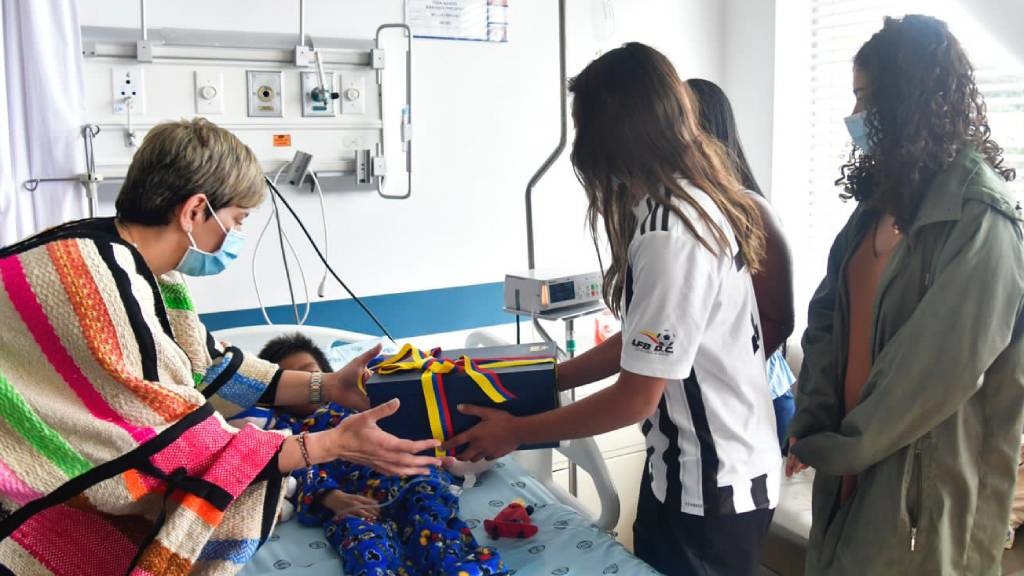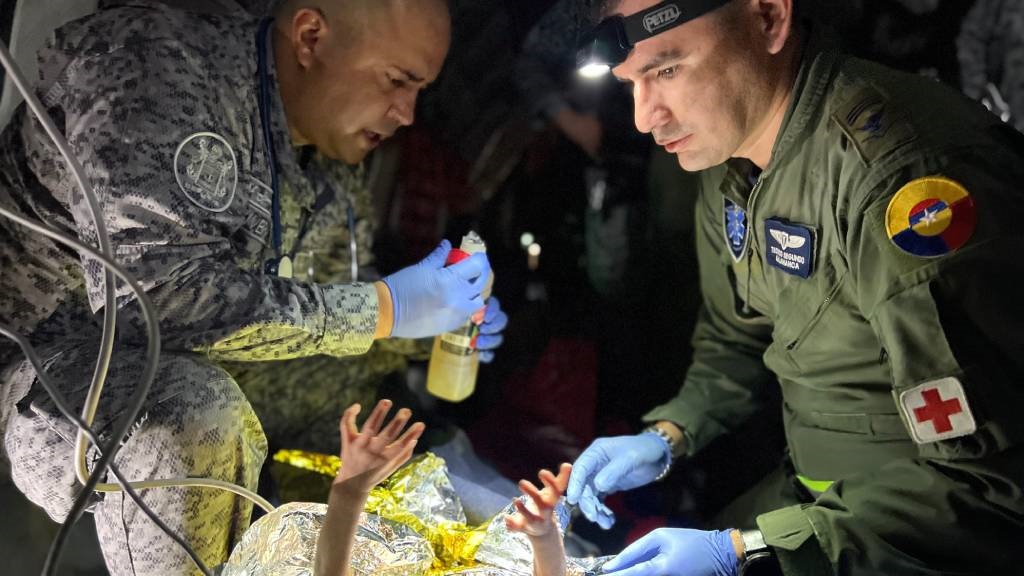- Four children were lost in the Amazon jungle for 40 days.
- Their plane crash, killing their parents and the pilot.
- They survived thanks to indigenous knowledge.
Lost for 40 days in the Colombian Amazon, four Indigenous children survived eating seeds, roots and plants they knew were edible thanks to their upbringing.
And it was in part down to the local knowledge of Indigenous adults involved in the search alongside Colombian troops that they were ultimately found alive.
"The survival of the children is a sign of the knowledge and relationship with the natural environment that is taught starting in the mother's womb," according to the National Organisation of Indigenous Peoples of Colombia (OPIAC).
The four siblings survived a small plane crash on 1 May that took the lives of the pilot, their mother and a third adult.
The family of the children clung to hope that the siblings' familiarity with the jungle would see them through.
READ | Baby rescued after being left in car for 'several hours' by parent in Durban
The "children of the bush", as their grandfather called them, survived eating yucca flour that was aboard the doomed plane, and scavenging from relief parcels dropped by search helicopters.
But they also ate seeds, fruits, roots and plants that they identified as edible from their upbringing in the Amazon region, Luis Acosta of the National Indigenous Organization of Colombia (ONIC), told AFP.
Acosta, who took part in search operations, said the children were imbued with "spiritual force".
That is a shared perception among Indigenous leaders, and Acosta noted that a guardian was to be posted outside the military hospital where doctors were attending to the children to help accompany them "spiritually".
Javier Betancourt, another ONIC leader, told AFP:
"The world needs this kind of special relation with nature, to favour those like the Indigenous who live in the jungle and take care of it."
During the search, soldiers worked side by side with Indigenous trackers for 20 days.
President Gustavo Petro praised what he called a "meeting of Indigenous and military knowledge" that he said showed respect for the jungle.
Army helicopters broadcast recordings of the children's grandmother telling them in the Indigenous Huitoto language to stay put in one spot until rescuers reached them.
"It was President Petro who brought us together," Acosta told local media, referring to soldiers and Indigenous experts.
"In an initial meeting, eight days before our search began, the president told us we needed to go with the army because the army couldn't do it alone," he added.
More than 80 volunteers from Indigenous territories in the departments of Caqueta, Putumayo, Meta and Amazonas joined around 100 soldiers in what was dubbed "Operation Hope".
It was an unusual union of forces.
In many of Colombia's Indigenous territories, armed outlaw groups roam and easily coerce native peoples, who protect their lands with rudimentary weapons.
Relations between Indigenous communities and the armed forces are also strained.
But in the Guaviare department, rescuers from separate groups set their differences aside to work together.
While soldiers planned operational details, native searchers held rituals to communicate with jungle "spirits," using mambe, a paste made of coca leaf and ash, as well as chirrinchi, a fermented drink.
Using machetes, rescuers felled trees and marked them with spray paint to guide the children.
Indigenous medicinal knowledge was also used to adapt to the difficult jungle conditions, treating scratches, splinters, insect bites, exhaustion and physical pain.
The indigenous people have "worked in the rain, in storms and in many difficult situations, but always with the hope and spiritual faith that (the children) could be found", Acosta said.
It all led to the discovery of the siblings by an Indigenous tracker in an area that hadn't yet been explored.




 Publications
Publications
 Partners
Partners


























